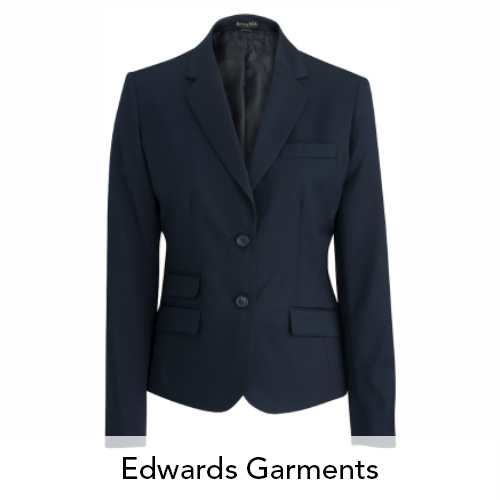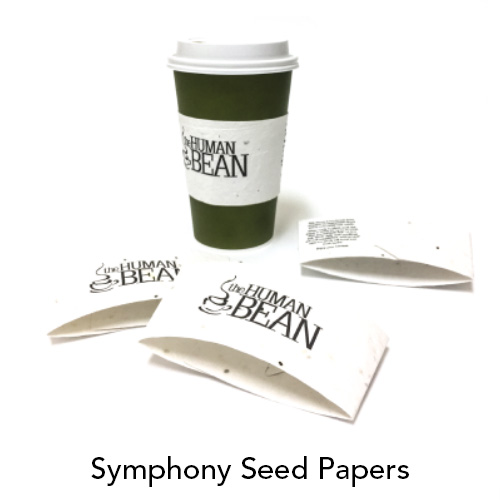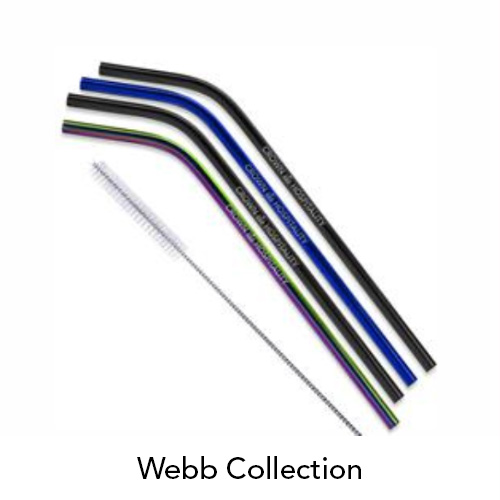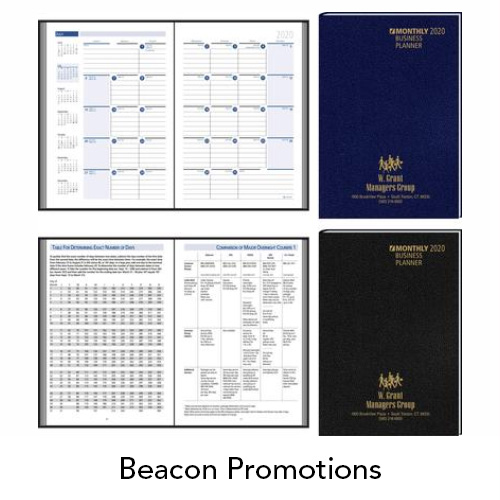April 22 is Earth Day, an annual event to celebrate the bounty of the planet that continues to give and sustain life. As consumers and the businesses that cater to them become more staunch in saving and replenishing the planet’s resources, the necessity to consume items that do no harm (or at least minimal) is imperative.
More of your businesses are demanding that the products they use as promotions are ecologically friendly. And with each passing year, this is easier to fulfill. In fact, one distributor is completely devoted to all-promos eco-sustainable. Eco Promotional Products (EPP) of Prospect Heights, IL is a green full-line distributor that was, according to its website, “born out of the passion to promote environmental savings and sustainable marketing.” EPP is a Certified BCorp, Green America Gold-certified company and a certified WOSB (Woman Owned Small Business).
Another promotional products distributor devoted to green products is Eco Marketing Solutions of Austin, TX. According to founder Robert Piller, Eco Marketing Solutions is focused on “an environmentally and socially conscious approach to promotional products. Our carefully selected line of custom printed promotional products includes either energy saving, natural, organic, recycled and/or reusable materials to reduce landfill waste and to help save our environment.”
Now, you don’t have to go that far in specializing but you can invest more time and focus efforts in this area. The promotions here says Gwen Brey of Beacon Promotions, “are unlimited, as this subject can be tied into many different themes, causes or events.” When using post-consumer waste, fewer natural resources are used, she points out. “But it’s more than what we don’t take from the planet - It’s what we give back.”

Taraynn Lloyd of Edwards Garment believes that everyone should make a commitment to the environment and to work with suppliers that are socially and environmentally responsible. This is reflected in how the supplier develops fabrics and the manufacturing processes used to deliver wearables, she says, and where possible add recycled products to create something new. An example of this is Edward’s Garment’s Redwood & Ross Suit Separates using intaglio fabric. “The retail-inspired styling is right on trend and the fact that the intaglio fabric is composed with 23% recycled polyester is a win for the environment, our distributors and Edwards,” she describes.
For Edwards, she adds, the benefits are wide-ranging and the supplier is “committed to a supply chain that is capable of providing continuity of garments while minimizing the total environmental footprint of our products. We have begun the journey to take steps necessary to preserve our natural resources.”
In May 2018 Edwards Garment joined the Sustainable Apparel Coalition (SAC), a group of nearly 200 global brands, retailers, and related organizations (non-profit environmental organizations, academic and scientific institutions) committed to improving supply chain sustainability in the apparel and textile industries. As part of its SAC membership, Edwards uses the group’s sustainability measurement tool, the Higgs Index, to drive environmental and social responsibility throughout its supply chain.
Reducing waste such as replacing plastic, is also on trend – last year, the city of Seattle famously banned all plastic drinking straws, and California banned all straws from restaurants. And this may be the beginning of common single-use plastic items discarded with high frequency.

“Just like straws that are currently polluting our environment, many promotional items are quickly seen, used, and then thrown away,” observes Lauri Felson, President of Symphony Seed Papers. Unfortunately, she adds, many promotional products are made of plastic and are not readily recyclable. Symphony’s seed paper is handmade in the USA from already recycled papers and cotton, which are made into a promotional product that, instead of being thrown away, “can be planted to grow into flowers, vegetables, trees or herbs. These make the world more beautiful” she emphasizes.
Another benefit your customers will reap by using eco-friendly promotional products is a good reputation. “Most businesses work hard to create a positive image and good reputation. Using environmentally friendly products is a clear illustration they are aware of the advantages of providing sustainably sourced products.”
Stainless steel straws are huge for Webb Collection, according to Jake Peterson, vice president of sales & marketing. Two of Webb’s largest product categories are eco-friendly, according to Peterson: stainless steel straws and sustainably sourced coasters (in bamboo, acacia wood or olive wood) save the environment by having a long life span as they also dramatically reduce waste. These make great sign-on gifts, sales incentives, thank you gifts from realtors or mortgage company reps, and for company stores.

It is easier today than ever to generate enthusiasm among your customers to select eco-friendly and sustainable products – there are many distinctive selling points. For example, tote bags are a popular product. And says Brey, they are reusable, durable, free of PVC coating and lead, and reduce the use of plastic shopping bags, which reduce the carbon footprint, eases the strain on landfills.
Polypropylene, used in Beacon’s non-woven totes, is a number 5 plastic that can be recycled in participating communities, she explains. This material also consumes less energy to manufacture than cotton totes. Brey suggests using some statistics about plastic bags and their environmental impact as part of a sales presentation for reusable totes:
Over 380 billion plastic bags, sacks, and wraps are consumed in the US each year
A plastic shopping bag is used for approximately 12 minutes
Plastic bags are made from polyethylene, which is a thermoplastic made from crude oil. As Polyethylene breaks down, toxic substances leach into the soil and enter the food chain
Plastic bags account for 10% of all coastline debris in the US.
Choosing products made with post-consumer waste, such as that used in Beacon’s collection of Ready Reference® planners (made with 30% post-consumer materials), are attractive to eco-minded business owners and buyers as fewer natural resources are used, Brey points out.

Products can be “green” in other ways that provide multiple values, such as seed cards. One of Symphony Seed Cards’ popular items is a recipe card; the leaf on the card will grow a variety of fresh herbs, and the card also features has a recipe to use once the herb is grown.” I believe that anyone would want to have a small garden growing in their windowsill!” she says.
A fun idea as a handout is a seed card, especially for home cooks and families with younger children. “We recently introduced spa-like scented eco-friendly seed paper featuring organic oils such as Rosemary/Mint or Lavender that transform the paper into a printed air freshener that can be planted after use. Also new is Bloom Boxes, hand-rolled roses from seed paper that can be planted after the gift is received,” Felson describes.
All these and many more can be sold with increasing volume to almost any customer. As Earth Day is coming up, it can be a starting point for your customers who want to make a vow of being greener and more ecologically aware. For Earth Day activities, help your customers select products that reflect a goal to encourage recycling/waste reduction, composting, conserving energy, and beautifying green spaces. Another idea comes from EPP – “Businesses that make sustainability a priority often have Earth Day team-building activities for employees, like beach and park cleanups.”
Many Earth Day events, according to EPP’s website, “are geared towards students who will be the caretakers of our Earth in years to come. Educating young people about Earth Day and what it represents is the most important message of the day.”
Lloyd agrees, noting that “today’s youth will be the voice of change when it comes to social and environmentally responsible promotional products. They will and have already changed the landscape and discussion.”
It’s already happening – and it’s the perfect time to pitch in!
CASE STUDIES
Gwen Brey of Beacon Promotions: “A school booster club was working on a fundraiser for their athletic department. They wanted something that would get a lot of exposure for the school, while also being environmentally friendly. They chose the Non-Woven Carry All Bag (#BGNW4300) because it is large with a large imprint area that would promote the school pride and it is made with recycled material. Part of the fundraising effort was to educate the students about the perils of plastic shopping bags and how they adversely affect the environment. That was to be part of their sales pitch when they were taking orders. The booster club was pleased with the number of bags that were ordered and how involved the students got with educating their parents, grandparents, friends, and neighbors as they were out selling the bags.
Lauri Felson, President of Symphony Seed Papers: “Our ‘Barnyard Bookmarks’ were given out by one's state energy department and handed out at the State Fair to children to encourage to recycle, yet were also fun and a favorite of many kids.”